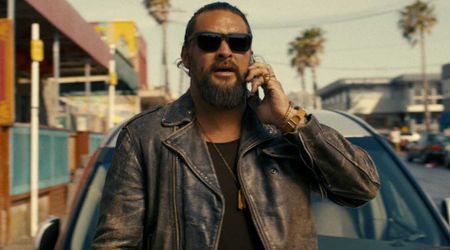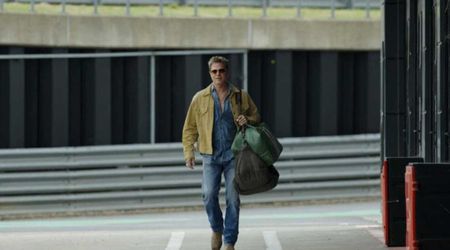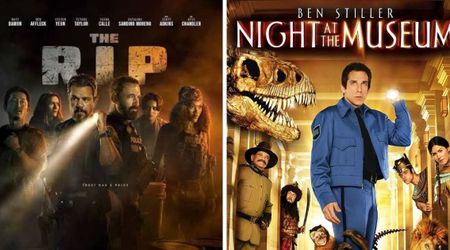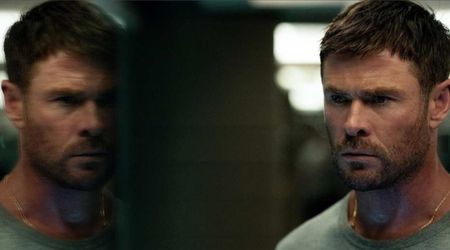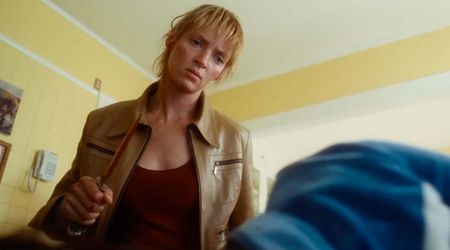'Rebuilding Paradise' Review: Ron Howard's California fire docufilm is raw, realistic and terrifying

In the wake of a tragedy, perhaps hope is the only way to cope. When warm, blue autumn skies are suddenly engulfed in black and orange, it's natural that people nearby would resort to praying. It's worst if the flames are dancing upon what has been a shelter for decades. Houses, commercial buildings, wildlife - nothing was spared from the wrath of nature. And as terrifying as the November 2018 Californian wildfire tragedy gets, Ron Howard's portrayal of the crisis, the immediate response, aftermath and subsequent comeback from it all in 'Rebuilding Paradise' is yet another documentation of what happens to tragedy-struck areas like this once the media walks over to another crisis.
Howard's documentary opens on November 8, 2018 - the fateful day when California's deadliest ever recorded wildfire hit the Butte County town of Paradise. Over the last one year, television has tasked itself with showing a fictionalized recount of the tale. In Season 5 of Showtime's drama 'The Affair', an episode dedicated to the wildfires showed SUVs piling up, people crashing inside cars or suffocating from the smoke outside and as roads are closed, hope becomes sparse. Every dark cloud has a darker, black, and orange lining. Fear and panic took over as people screamed in agitation and lack of faith both. It's a crisis unmatched and Howard's footage from the real-life incident only asserts how it was so much worse.
The Californian wildfires were, without discrediting the loss in general, more than just celebrity houses burning down and Howard manages to highlight that very well, right from the start. His direction, at the risk of sounding insensitive, is exciting to follow. Howard paints a hellfire so raw, so realistic that it becomes hard to dissociate from these countless lives and homes left shattered, directed to fend for themselves in remote little tents at public places where they can spend the night and seek immediate refuge. For there are flames drowning driveways and tall buildings both. Those that think have a shot at fleeing are attacked by embers as Howard's documentary constantly thrusts the question of redemption and fury all at once. Is there a way out? Is this what's become of us? What have we done to us?
Yet when the narrative gets too dark and dreary, Howard pads it up with moments of hope, albeit fleeting, but very necessary. Howard doesn't dwell much on people praying and the wholesome side of rescue. He focuses, duly, on every inspiring step of the way toward rebuilding from the wrretched state Paradise is left in, but he doesn't allow the mind to forget all that has been lost and all that is to be regained. A total of 85 lives lost, 14,000 homes destroyed and tens and thousands of residents displaced - such was the outcome of the Camp fire once it was done torching everything it touched.
It made little sense for people to go back with devastation reigning high. For some, there was no choice. They would rather wait out the tragedy and go back to rebuild whatever was left, no matter how crumbled. For others, it was more of a chance to establish ownerships; they have lived here for so long, what chance does a Camp fire have at shaking their roots? Howard draws an interesting parallel, even within the community of Paradise, all of whom are sheltered under the tent. He paints a realistic faux quarantine - the underprivileged nervous about where this leads them next, the privileged basking in the glory of selfish, vested interests.
A few weeks into the future, where the 'rebuilding' narrative takes its course, Howards presents to us regular pillars of the society taking a walk down the demolition. Students marvel at burnt down homes, policemen recount narrow escapes and the self-described town drunk turned mayor harps about the inherent hopeful nature of Paradise. The documentary gets heartbreaking when school superintendent Michelle John brings up the topic of homeless youth and the task of providing for them as schools are uprooted and crisis flows out the same way it has for the ongoing Covid-19 pandemic.
And that brings us to the uncertainty in Paradise's recovery which is bound to have been hindered by the pandemic. The film was first premiered at this year's Sundance Film Festival and therefore doesn't navigate Paradise's recovery in the aftermath of the deadly virus killing so many. That does not mean Howard excludes the legal action, fights, and meetings, some of them even attended by Erin Brockovich, as the community took a class action lawsuit again the Pacific Gas & Electric for its role in the deadly fire. It was a PG&E high-voltage line near the Poe Dam generating station six miles away that malfunctioned and started it all and while Howard excludes the eventual aftermath of the company's accountability, PG&E has pleaded guilty to 84 counts of involuntary manslaughter in the Camp fire.
Howard's haunting reminder of a fire that was snubbed on news reports much quicker than in real life also treads into territories where drought, rising temperatures and other natural attributes are weighed in as a possible catalyst to the fire. He is far from acquitting PG&E, but he's also on the brink of suggesting that there's more than goes into these tragedies and should there be another one like this, a Paradise resident's hopeful words "We aren't alone in this," rings more as a warning than a message of comfort. And there lies the terrifying aspect of the documentary.
'Rebuilding Paradise' is premiering on July 31, 2020, by National Geographic Films.


